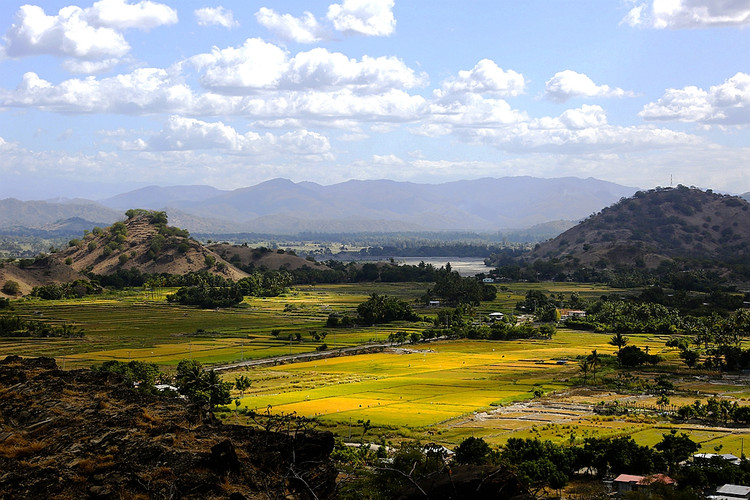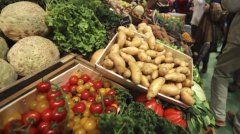2017 Starbucks new product East Timor bead coffee, how much is Starbucks East Timor bead coffee?
Professional barista communication, please pay attention to coffee workshop (Weixin Official Accounts cafe_style )
There is such a paradise, with first-class coffee beans in the trees, first-class salt in the lake, and first-class honey in the nest. Blessed, all can be sold for a lot of money, and the land and rivers are not polluted. However, this place was extremely poor and backward, and other countries did not seem to be interested in this paradise. Perhaps they had not figured out how to climb mountains and wade through rivers to transport resources at a low cost. Perhaps the forests and lakes here were not big enough to make a lot of money.
Thus, a war photographer who became attached to this place 20 years ago has been running around for this piece of pure land with his photos and legs. Every year and month, he races against time to make the residents become the owners of natural resources before the consortium takes a fancy to them, and controls the rights of sellers.
This Taoyuan is East Timor.

East Timor's coffee varieties are excellent and enjoy a high reputation. Coffee accounts for 80% of the country's total exports. Due to poverty and backward technology, most farms have not introduced chemical pesticides, making East Timor the world's largest organic coffee producer. Despite this, the local residents did not benefit from the good beans, and the average annual income of the people was less than 500 US dollars (about HK$3900).
Remote and scattered farms discourage foreign investment
The poor life of Easterners is not because farmers are squeezed by the chaebol, but because the areas where high-quality coffee beans are produced are remote, and the roads from the urban areas to these mountainous areas are dangerous and steep. Moreover, coffee plantations are mostly operated in the form of small farms, and the farms are not concentrated. Foreign organizations are discouraged.
Foreign capital cannot enter, and local coffee beans are difficult to get abroad. First, there are no basic road facilities in the mountains, and second, farmers do not have the basic tools to properly handle the harvested coffee beans. Harvested coffee beans, good varieties but uneven size, rough appearance, simply can not sell a good price. Daniel Groshong, founder of Hummingfish, a charity, said farmers now sell coffee beans for about US $2 (about HK $15) per kilogram, but in fact, the quality of the beans is worth about US $4 to US $5. If the quality is slightly adjusted and the packaging is added, Dan said, it can sell for US $10 abroad.
New Time captures the beautiful side of East Timor
Dan moved to Hong Kong from the United States in 1996. Two years later, he became attached to East Timor and was sent to East Timor province, which was still part of Indonesia at that time, to cover the referendum on independence. He published the first photo album in history for East Timor, promoted tourism for East Timor, and last year went to remote mountainous areas to find coffee plantations to save East Timor beans.
I don't know if Dan understands the saying "I don't go to hell, who goes to hell", but he probably holds this mentality and drives from the capital Dili to Laclubar in the central mountainous area. Although the drive is only 5 hours, the mountain road is rugged. He said that either the car is wider than the road on the cliff edge and falls down the mountain at any time, or the water level of the river is high when wading. And the windows, they die at any moment. Long mountains and rivers, walk to the top of the hill, finally found a village full of coffee trees.
The fruits of all mountains are not harvested with enough tools

Every harvest season, all the trees in the village are full of red coffee fruits. Why can't the villagers live a better life? The village chief complained because there were so many fruits all over the mountain that it was impossible to harvest them completely. Harvesting required so much manpower that even if the entire village went up to the trees to pick the fruit, it would not be possible to soak, strip, dry, and watch the endless fruit rot before it went bad. What they lacked was manpower and tools, and the skills to sell coffee beans for money. They have tried to sell some of the fruit to big coffee companies outside the district, but this method is limited by the weather. When it rains, the road slides and the ground sinks. They have no way to advance or retreat.
Packaging ideas to promote coffee beans to help raise prices
After Dan returned to Hong Kong, he obtained the assistance of Colour Brown Coffee Shop to hold seminars to raise funds. He spent tens of thousands of dollars to buy simple tools such as shelling machines and drying racks, etc., and transported them to Laclubar for harvesting experiments. As long as he could shorten the time required for bean preparation and dry the nuts into beans as soon as possible, the coffee beans would no longer be subject to time constraints when they were transported to other regions, and the money sold could be doubled.
After increasing harvesting efficiency, Dan now starts thinking about grinding and packaging coffee beans a little bit to build a brand of coffee that belongs to the region-marketing skills that can help double and double the price of coffee beans. The villages in Laclubar District, hearing that coffee has a way out, have signed agreements with Dan if they see the light. Up to now, there are 23 villages willing to jointly develop the unique brand of the district. Farmers in East Timor are seeing unprecedented access, and we in Hong Kong are seeing a near future where first-class East Timor coffee brands can be tasted anytime, anywhere: Maubere Mountain Coffee.
Hummingfish adds value to nature
Hummingfish Foundation was founded by Dan in 2010 with the mission of "adding value to nature", aiming to help underdeveloped areas build brands and promote their existing natural resources under the premise of ecological protection, thus helping communities to become self-sufficient. East Timor Laclubar is one of Hummingfish's main areas of assistance, others include the mainland of China, Haiti, Cambodia, etc.
Ice drops are sweetest when drunk
Three quarters of East Timor's land is hilly, coffee-rich mountainous areas, high altitude, long sunshine hours, fully meet the conditions for planting coffee trees, coupled with organic cultivation, so the excellent quality of East Timor coffee, coffee lovers are eager for, among which Laclubar area is the world-famous Arabica coffee. Colour Brown Coffee Shop teaches the way, where coffee can be brewed by hand (such as siphon pot), its aroma is sweet and smooth, and ice drop method can bring out the rich and round sweetness of East Timor coffee.
East Timor Asia's Youngest
East Timor is the youngest country in Asia. It was colonized by Portugal in the 16th century. It was annexed by neighboring Indonesia in 1975 and became independent in 1999 by referendum under the supervision of the United Nations. In the early years of independence, civil strife continued, and the political situation began to stabilize in recent years.
East Timor lies off the coast north of Australia and is dotted with small coffee farms.

A closer look at the selected story cards reveals the spire huts scattered all over the land.
Starbucks worked with local coffee cooperatives to build medical facilities, believing that better living conditions would help coffee farmers grow higher-quality coffee beans.
Speaking of Starbucks 'origins in East Timor,
A great god was about to appear.
Dave Olson.
It's okay if the name isn't familiar, but you must have seen this picture.
Yes, he is the father of concentrated baking! A legendary existence.
Joining Starbucks in 1986, Olson then oversaw the company's coffee program until he retired in 2013. He not only helped set up the company's R & D department, but also created the Corporate Social Responsibility department. Every CSR you attend is related to the proposal of the old man in the picture.
Over the next few years, Olson began working in a job that his friends all over the world wanted.
Daily work: travel around the world, buy green beans, visit coffee plantations.
In East Timor in the 1980s, the economic conditions were particularly backward, the roads were rugged and difficult to walk, the houses on the streets were extremely simple, and people had nothing, not to mention the coffee industry.
It took years for the coffee industry in East Timor to take shape, and people realized that growing coffee could change lives. Sam Filiaci, a local coffee bean merchant, faxed hundreds of potential big buyers hoping they would buy coffee beans from East Timor. Among them is Starbucks.
At that time, East Timor was still an Indonesian territory (East Timor declared independence in 2002). The political situation was chaotic and few people wanted to do business. Olson was the only one who answered the fax.
Olson first set foot in East Timor in 1994, buying 120 bags of green coffee beans from Filiaci. This number was actually not much.
"I know they've come up with the best quality batch of beans. So I bought the beans, convinced they could do better."
Although Olson says the beans didn't bake much, the deal was a magical place to start. From 1994 until now, Filiaci has remained our exclusive supplier, buying coffee beans only for Starbucks.

The East Timor beaded coffee you've had this season,
That's the story behind it.
Brand: Starbucks
Price: 168
Coffee Series: Coffee Bean Selection
Sugar: No sugar
origin: United States
Coffee type: Other
Degree of roasting: medium
Baking Set Portion: Set for 3
Cycle:1 week
Important Notice :
前街咖啡 FrontStreet Coffee has moved to new addredd:
FrontStreet Coffee Address: 315,Donghua East Road,GuangZhou
Tel:020 38364473
- Prev

How to make a cup of coffee by heart?
Professional barista communication Please follow the coffee workshop (Wechat official account cafe_style). I am most afraid that someone will ask me to teach him how to make coffee! In fact, what I'm afraid of is not the heart he wants to learn, but his intolerant attitude towards coffee. He thinks it's easy to make coffee as long as I tell him a few tricks, but whenever I say the trick is to make coffee with my heart, they think I'm teasing him, but it's true.
- Next

The "Great Extinction" began that mankind was afraid that the crisis of food shortage was imminent and that it was urgent to discover new ingredients.
Professional baristas Please follow the Coffee Workshop (official Wechat account cafe_style) A new global food crisis is imminent, with analysts pointing out that people's daily supplies of potato chips, coffee and chocolate may all be affected by the "mass extinction". The Guardian reported that the International Centre for Biodiversity, a research organization, published a research report yesterday warning of "the sixth organism."
Related
- What brand of black coffee is the most authentic and delicious? what are the characteristics of the flavor of the authentic Rose Summer Black Coffee?
- Introduction to the principle and characteristics of the correct use of mocha pot A detailed course of mocha pot brewing coffee is described in five steps.
- Which is better, decaf or regular coffee? how is decaf made?
- How much is a bag of four cat coffee?
- How about four Cat Coffee or Nestle Coffee? why is it a cheap scam?
- Which is better, Yunnan four Cats Coffee or Nestle Coffee? How about cat coffee? is it a fake scam? why is it so cheap?
- How about Cat Coffee? what grade is a hoax? which instant coffee tastes better, four Cat Coffee, Nestle Coffee or G7 coffee?
- Process flow chart of coffee making-Starbucks coffee making process what coffee tastes good at Starbucks
- The top ten best coffee beans in the world Rose summer coffee or Tanzanian coffee tastes good
- Yunnan four cat coffee is good to drink?_four cat coffee is a big brand? four cat blue mountain coffee is fake?

